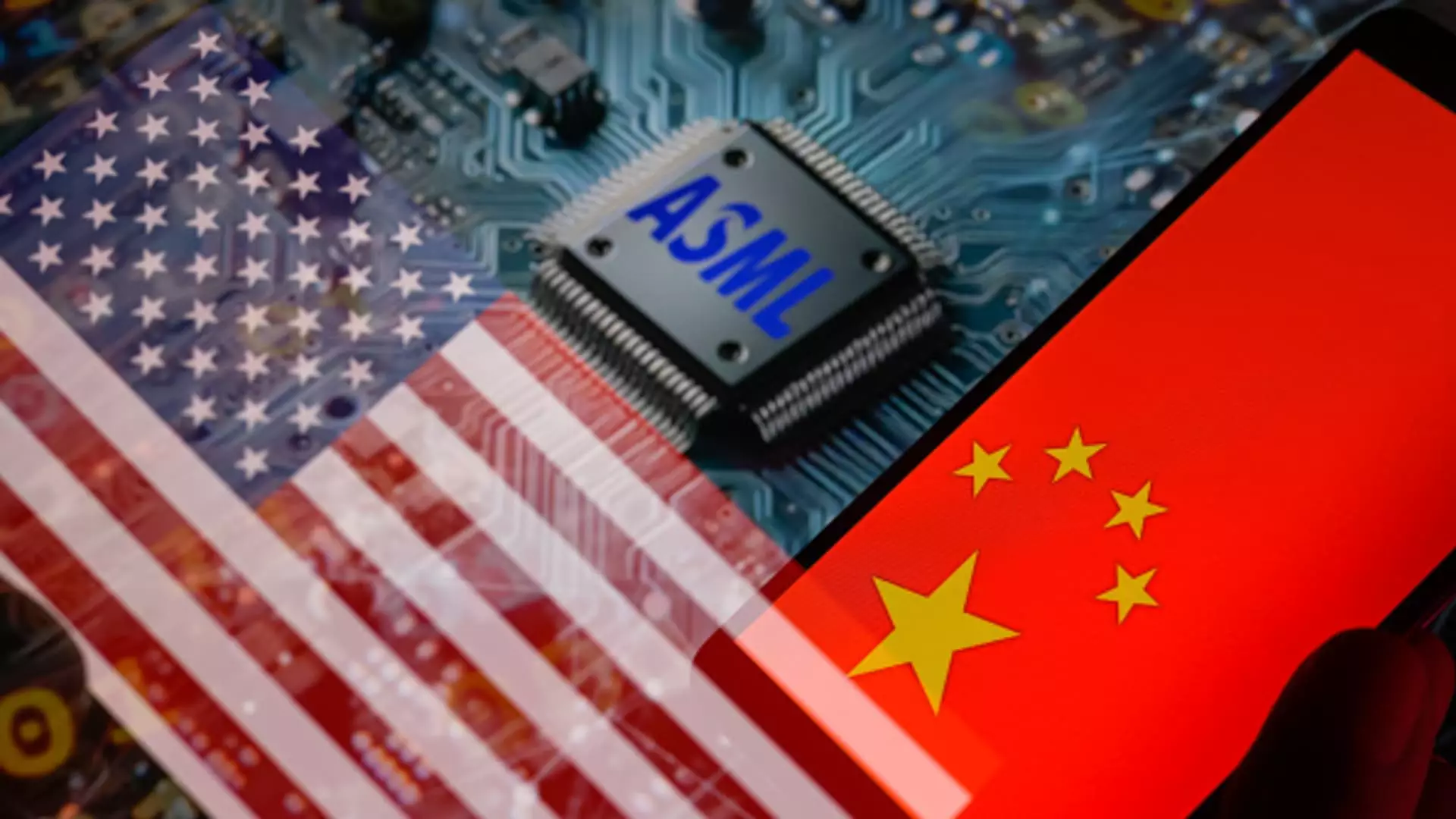The semiconductor industry is undergoing tumultuous changes, particularly amid intensifying tensions between the U.S. and China. Reports indicate that the U.S. government is contemplating a set of sanctions aimed at China’s semiconductor sector, albeit less stringent than earlier proposals. This decision has sparked a noticeable uptick in the stock prices of major semiconductor equipment manufacturers, reflecting investor optimism despite ongoing geopolitical challenges.
Stock Market Reactions
Following the announcement, companies like ASML and Tokyo Electron saw significant stock gains. ASML’s shares rose approximately 3.6% in early European trading, while Tokyo Electron’s stock surged by over 6% in Japan. This volatility highlights the essential role these companies play in the semiconductor supply chain and how sensitive their financial health is to policy changes, especially those involving trade restrictions and sanctions.
The United States is reportedly considering new methods to regulate the sale of semiconductor equipment and advanced AI memory chips to China. Crucially, it appears that these impending regulations will be less severe than previous proposals that worried many in the industry. The U.S. Commerce Department has been tight-lipped regarding specifics in these discussions, leaving analysts and investors speculating about potential outcomes.
For instance, one of the adjustments under consideration involves the Entity List—a blacklist of suppliers banned from trading with certain Chinese corporations. Notably, ChangXin Memory Technologies, a notable competitor in the memory chip space, has been excluded from this list. This suggests a deliberate strategy to manage economic fallout for foreign companies that rely on the Chinese market.
Analysts at financial services firm Jefferies offered insights into how these developments might affect ASML, especially given the company’s earlier predictions of a 30% revenue decline from China in 2024. The refraining from adding ChangXin Memory to the blacklist could lessen the anticipated decline in ASML’s Chinese sales, providing a glimmer of hope for the embattled firm. With ASML positioned at the heart of semiconductor manufacturing—providing machines for advanced chipmaking—it’s crucial to assess how policy changes can influence its sales in key markets like China.
As restrictions continue to tighten from both the U.S. and Dutch governments, their impact on the global semiconductor landscape becomes clearer. Foreign firms that provide critical equipment to fabrication plants, commonly known as “fabs,” must now navigate a precarious environment where policy changes can have immediate repercussions. The ripple effects of U.S. sanctions directly targeting semiconductor manufacturers may pose risks for firms like ASML, but they also have the potential to boost fortunes for foreign competitors—at least in the short term.
Ultimately, the evolving dynamics of U.S.-China relations pose both challenges and opportunities for companies entrenched within the semiconductor supply chain. As stakeholders adjust to the new regulatory environment, it’s evident that the industry remains in a state of flux, presenting ongoing complexities for semiconductor manufacturers worldwide.


Leave a Reply